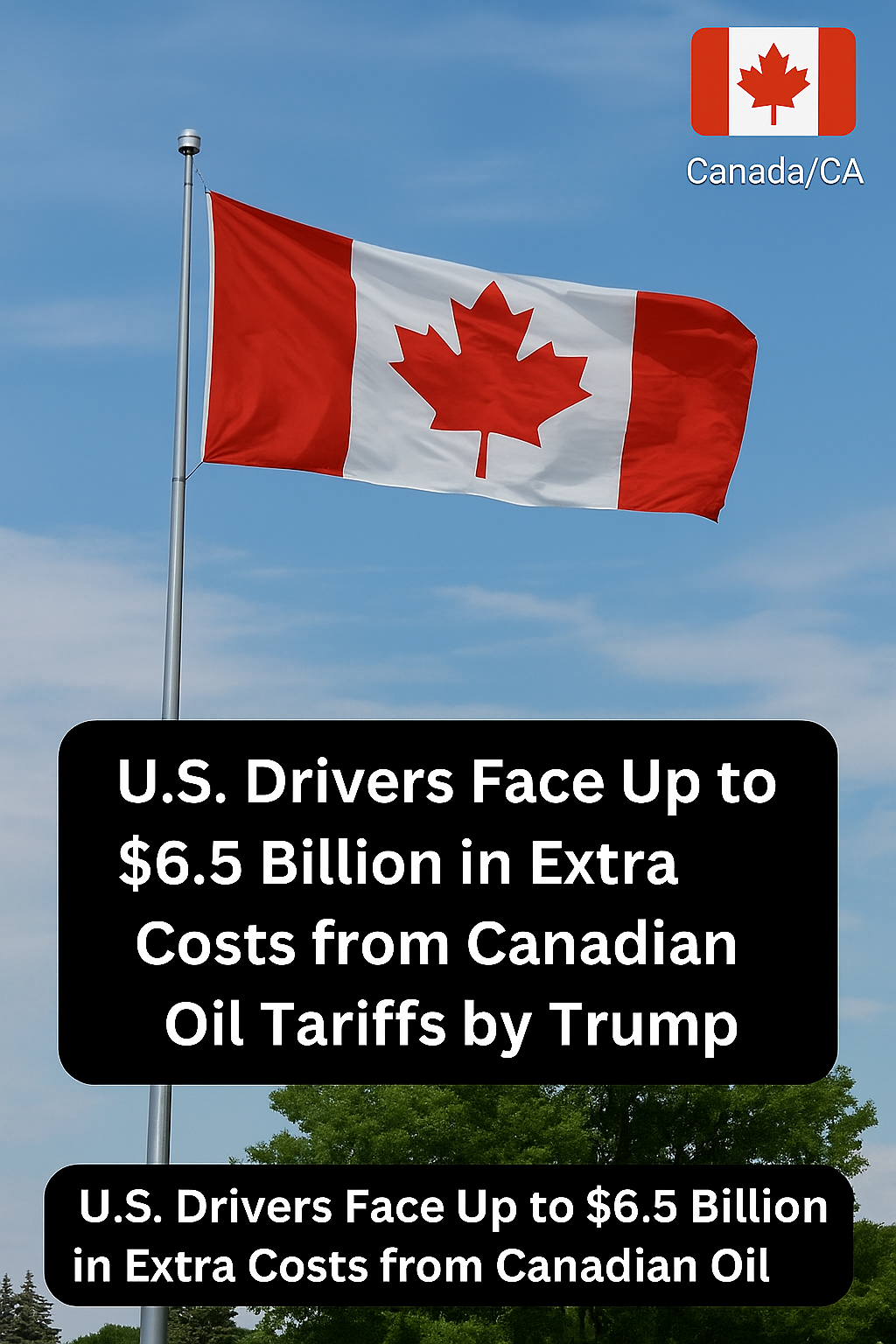Physical Address
304 North Cardinal St.
Dorchester Center, MA 02124
Physical Address
304 North Cardinal St.
Dorchester Center, MA 02124

August 2025 – Canada-U.S. Trade Tensions Intensify
A new wave of trade friction between Canada and the United States is set to hit American drivers hard. Recent tariffs imposed on Canadian oil are projected to cost U.S. motorists an estimated $6.5 billion in extra fuel expenses over the next year, according to industry analysts.
Canada is the single largest foreign supplier of crude oil to the United States, providing roughly 4 million barrels per day. These imports account for a significant portion of U.S. refineries’ supply, especially in the Midwest and Gulf Coast. With tariffs now in place, refineries will be paying more for Canadian crude—and those costs are expected to be passed directly to consumers at the pump.
The additional cost translates to an average of 12–15 cents more per gallon for gasoline in some regions, with Midwest states—heavily reliant on Canadian oil—seeing the steepest increases. Analysts warn that prices could spike even higher if global crude markets tighten or if Canadian producers cut exports in response.
Beyond the gas station, the higher costs could ripple through the broader economy. Increased transportation expenses affect shipping companies, airlines, and industries dependent on fuel—potentially leading to higher prices for everyday goods.
Tourism and cross-border trade could also take a hit. Some U.S. border states, already struggling with declining Canadian visitors, may face additional economic strain as travel costs rise on both sides of the border.
Canadian officials have defended their stance, saying the tariffs are a countermeasure to previous U.S. trade actions targeting Canadian industries. They argue that the move is about leveling the playing field and protecting Canadian energy producers.
The U.S. oil industry has voiced concerns, calling the tariffs “an avoidable blow” to consumers and businesses. Refiners and fuel distributors are urging Washington to find a resolution quickly, warning that prolonged tensions could disrupt supply chains and weaken energy security.
While negotiations remain possible, energy experts caution that geopolitical and trade disputes rarely resolve overnight. In the meantime, U.S. drivers should brace for a period of elevated fuel prices, and a reminder that North America’s energy markets are deeply interconnected.
The $6.5 billion price tag is more than just a number, it’s a sign of how political decisions at the highest level can hit everyday Americans directly in the wallet.